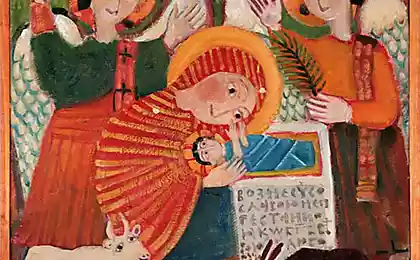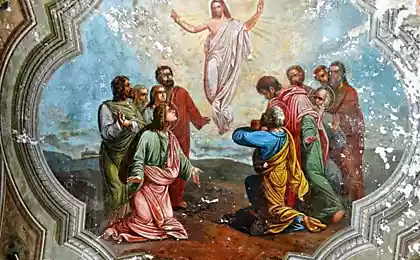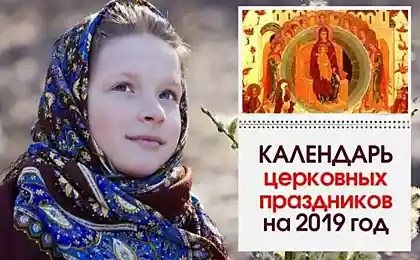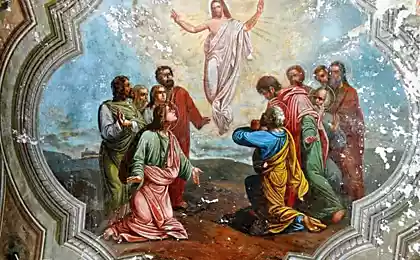211
An unexpected turn in determining the date of Christmas, Epiphanius told when we celebrate now
In 2023, following the results of the calendar reform, the Orthodox Church of Ukraine determined a new day for the celebration of the Nativity of Christ - December 25. From now on, this is an official date that has been fixed at the state level. However, those who used to celebrate Christmas on January 7, spoke out against the innovations. Millions of people do not want to change the traditions of their ancestors.

Therefore, leading Ukrainian clergymen were quick to comment on such an important issue: “We will solve it in love and with deep respect for every believer, because the most important thing for us these days is the glorification of Christ and the Mother of God.” What is known about church reform and whether we can celebrate the birth of Christ on January 7, read on.
Christmas 7 January The most important message that will dot all the “i”: the Church will not prohibit the celebration of Christmas on January 7. So the parafians will be able to meaningfully and step by step move to a new chronological system.
Since 2017, Ukrainian Christians have celebrated 2 holidays according to their native religion. December 25 is the traditional Catholic Christmas according to the New Julian and Gregorian calendars. January 7 is an Orthodox and Greek Catholic holiday according to the Julian calendar.

Ukrainians officially rested both days, but Orthodox and Greek Catholics did not attend services until January 6-7. After 2 years, Metropolitan Epiphanius of Kiev announced that from now on every parishioner can celebrate a bright holiday according to the new Gregorian calendar, if he has such a desire. In 2022, the Holy Synod of the OCU decided to assign official status to the service on December 25.
September 1, 2023 became the date of transition of the Orthodox and Greek Catholic Church of Ukraine to the New Julian chronology. From now on, we celebrate each religious date 13 days earlier. Also, the Verkhovna Rada of Ukraine approved a single Christmas date – December 25. The corresponding order was signed by President Vladimir Zelensky. January 7 was removed from the list of holidays and weekends.

How will we celebrate next? To save society from schism and strife on the basis of religion, the Church allowed to celebrate the Nativity of Christ as before. The local council, the highest governing body of the OCU, said: “No one will force people to follow the calendar reform by force, so that everyone can consciously accept the changes.”
The local council decided that any monastery and parish have the right to hold services on January 6 and 7. Adaptation will take time and will be provided. For the OCU, the exact timing of the transition has not been established, and for the UGCC it will be 2 years.
Over the past few years, the number of parafians in Ukraine has increased, who supported the transfer of the holiday to December 25. Their decision was largely influenced by the full-scale war that Russia unleashed against Ukraine. The change of customs made it possible to establish a framework and separate from the Russian Orthodox Church, which had a serious weight in our country.

Many OCU priests are convinced that the transition to new dates will take place for parishioners without much difficulty. After all, already in 2022, a large number of Ukrainian Christians decided to celebrate a bright holiday on December 25 even before the reform was introduced. By and large, we live holidays, not dates, so nostalgia for the old canons quickly exhausts itself.
Where did the date of December 25 come from? No historical source has ever given a reliable date for the birth of the Son of God. However, in the Chronograph of the Roman Empire there is a note from 354 about the coming of Christ on December 25. This fact has been refuted by some scientists.

According to another version, the first Christians chose this day to weaken the influence of paganism. On this day, the Romans glorified the sun god Sol, when the daylight increased and the darkness waned. Instead, Christ’s minions praised the Son of God, calling him the “Sun of Righteousness.”
In ancient times, Christmas and Epiphany had one festive day – January 6. 3 events were celebrated at once: Christmas, the appearance of the Holy Trinity and Baptism. In 431, the Council of Ephesus decided to celebrate the birth of Christ on December 25.
What is the difference between Christmas and Slavic Christmas? Over the centuries, each nation gradually developed its religious calendar and adjusted it to its own rhythm of life. For example, the Ukrainians managed to make something unified from the pre-Christian customs of caroling and Christmas traditions.

On December 24-25, the ancient Slavs celebrated Kolyada, the rebirth of the Sun. Traditional carol songs praised the luminary, but with the passage of time their content has changed. They began to celebrate the miracle of Jesus’ appearance.
As January 7 appeared in the church calendar Since the beginning of autumn 2023, the OCU conducts services according to the New Julian calendar. It replaced the Julian, which was invented under Julius Caesar. Over time, the Roman chronological system showed its inaccuracy. Every 128 years, all dates shifted one day ahead. So, in the century before last, December 25 shifted to January 6, and in the XX-XXI century – to January 7. In another 100 years, we would celebrate Christmas on the 8th.
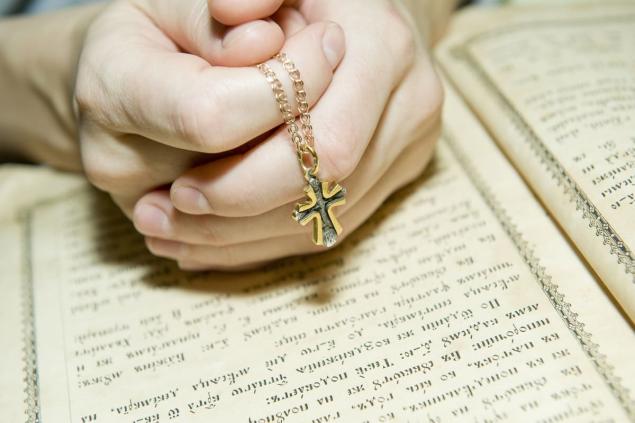
The first to the new Gregorian calendar was the Catholic Church. The Orthodox Church refused him because he did not follow the rules for determining Easter dates. At the beginning of the last century, the New Julian calendar coped with this task.
The Russian and Ukrainian Orthodox Church refused to switch to the new style. The priests protested. First against "Catholicization", and then against the directive transition to the Gregorian calendar under the USSR.
Over time, these factors ceased to matter, and the Julian style firmly entrenched in the Russian Church, with which Ukraine no longer wants to have anything in common.

Note that until February 14, 2024 in Ukraine will cancel all additional weekends and holidays due to the extension of martial law. Therefore, on December 25, we do not rest, but work for the benefit of our victory.

Therefore, leading Ukrainian clergymen were quick to comment on such an important issue: “We will solve it in love and with deep respect for every believer, because the most important thing for us these days is the glorification of Christ and the Mother of God.” What is known about church reform and whether we can celebrate the birth of Christ on January 7, read on.
Christmas 7 January The most important message that will dot all the “i”: the Church will not prohibit the celebration of Christmas on January 7. So the parafians will be able to meaningfully and step by step move to a new chronological system.
Since 2017, Ukrainian Christians have celebrated 2 holidays according to their native religion. December 25 is the traditional Catholic Christmas according to the New Julian and Gregorian calendars. January 7 is an Orthodox and Greek Catholic holiday according to the Julian calendar.

Ukrainians officially rested both days, but Orthodox and Greek Catholics did not attend services until January 6-7. After 2 years, Metropolitan Epiphanius of Kiev announced that from now on every parishioner can celebrate a bright holiday according to the new Gregorian calendar, if he has such a desire. In 2022, the Holy Synod of the OCU decided to assign official status to the service on December 25.
September 1, 2023 became the date of transition of the Orthodox and Greek Catholic Church of Ukraine to the New Julian chronology. From now on, we celebrate each religious date 13 days earlier. Also, the Verkhovna Rada of Ukraine approved a single Christmas date – December 25. The corresponding order was signed by President Vladimir Zelensky. January 7 was removed from the list of holidays and weekends.

How will we celebrate next? To save society from schism and strife on the basis of religion, the Church allowed to celebrate the Nativity of Christ as before. The local council, the highest governing body of the OCU, said: “No one will force people to follow the calendar reform by force, so that everyone can consciously accept the changes.”
The local council decided that any monastery and parish have the right to hold services on January 6 and 7. Adaptation will take time and will be provided. For the OCU, the exact timing of the transition has not been established, and for the UGCC it will be 2 years.
Over the past few years, the number of parafians in Ukraine has increased, who supported the transfer of the holiday to December 25. Their decision was largely influenced by the full-scale war that Russia unleashed against Ukraine. The change of customs made it possible to establish a framework and separate from the Russian Orthodox Church, which had a serious weight in our country.

Many OCU priests are convinced that the transition to new dates will take place for parishioners without much difficulty. After all, already in 2022, a large number of Ukrainian Christians decided to celebrate a bright holiday on December 25 even before the reform was introduced. By and large, we live holidays, not dates, so nostalgia for the old canons quickly exhausts itself.
Where did the date of December 25 come from? No historical source has ever given a reliable date for the birth of the Son of God. However, in the Chronograph of the Roman Empire there is a note from 354 about the coming of Christ on December 25. This fact has been refuted by some scientists.

According to another version, the first Christians chose this day to weaken the influence of paganism. On this day, the Romans glorified the sun god Sol, when the daylight increased and the darkness waned. Instead, Christ’s minions praised the Son of God, calling him the “Sun of Righteousness.”
In ancient times, Christmas and Epiphany had one festive day – January 6. 3 events were celebrated at once: Christmas, the appearance of the Holy Trinity and Baptism. In 431, the Council of Ephesus decided to celebrate the birth of Christ on December 25.
What is the difference between Christmas and Slavic Christmas? Over the centuries, each nation gradually developed its religious calendar and adjusted it to its own rhythm of life. For example, the Ukrainians managed to make something unified from the pre-Christian customs of caroling and Christmas traditions.

On December 24-25, the ancient Slavs celebrated Kolyada, the rebirth of the Sun. Traditional carol songs praised the luminary, but with the passage of time their content has changed. They began to celebrate the miracle of Jesus’ appearance.
As January 7 appeared in the church calendar Since the beginning of autumn 2023, the OCU conducts services according to the New Julian calendar. It replaced the Julian, which was invented under Julius Caesar. Over time, the Roman chronological system showed its inaccuracy. Every 128 years, all dates shifted one day ahead. So, in the century before last, December 25 shifted to January 6, and in the XX-XXI century – to January 7. In another 100 years, we would celebrate Christmas on the 8th.

The first to the new Gregorian calendar was the Catholic Church. The Orthodox Church refused him because he did not follow the rules for determining Easter dates. At the beginning of the last century, the New Julian calendar coped with this task.
The Russian and Ukrainian Orthodox Church refused to switch to the new style. The priests protested. First against "Catholicization", and then against the directive transition to the Gregorian calendar under the USSR.
Over time, these factors ceased to matter, and the Julian style firmly entrenched in the Russian Church, with which Ukraine no longer wants to have anything in common.

Note that until February 14, 2024 in Ukraine will cancel all additional weekends and holidays due to the extension of martial law. Therefore, on December 25, we do not rest, but work for the benefit of our victory.
Recently, my thirty-year-old son announced that he wanted to take the apartment on a mortgage, at first I was happy, but a week later I received a call.
Once a month, my mother brings home work coats and boils them in the old-fashioned way, everything would be fine, but somehow my husband caught her doing this job.
